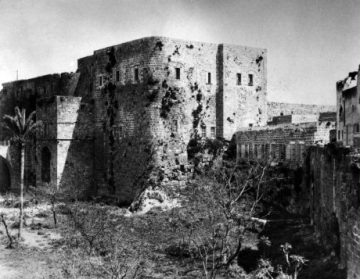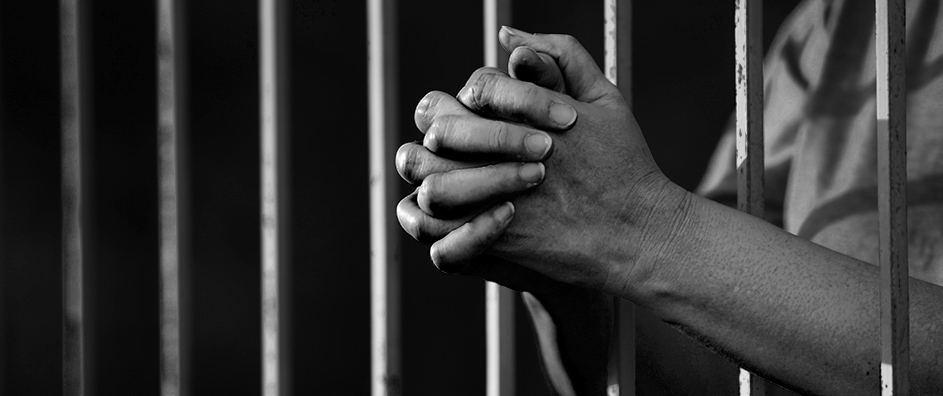The views expressed in our content reflect individual perspectives and do not represent the authoritative views of the Baha'i Faith.
A woman discussing the problems of her now-retired friends said, “Everyone who I know is undergoing health issues, loss of their spouses or various other struggles, but never have I met such incredibly interesting people as I know at this point in my life. They have earned their wisdom.”
Quite a few of these gracious individuals earned their aplomb and their paradigm shifts with the aid of prayer. By the time they reached maturity, prayer had somewhat released them from the prison of self. Early in life—and perhaps, throughout life—humans contend with what the Baha’i writings call “the insistent self.” When our egos are bruised or others attack our identities or actions, our reptilian brains spring into the fight or flight mode, and we will do anything to deflect criticism. We feel an adrenaline rush that deters our tendency to rush into the mode of prayer—yet true heroism responds with the reflective response that prayer can provide.
No wonder prayer has rallied the spirits of prisoners in all parts of the world—especially prisoners of conscience. We can learn valuable perspectives by considering how the spiritual messengers of the age apply prayer as an “anti-weapon” when attacked, persecuted and imprisoned for their beliefs.
When your own indignities seem greater than you can bear, imagine this. You have committed no crime, and yet guards take you from your home and thrust you into a prison merely for your beliefs. That prison consists of a subterranean hole so dark that no light can penetrate it. You have a heavy 112-pound iron chain around your neck, attached to the chains of other prisoners, all cramped beside you in the fetid prison. What would you do?

When Baha’u’llah found himself in this situation in 1852, he organized all the prisoners to maintain hope and sanity through prayer. The prisoners would face each other in two rows. Half the prisoners, chained in one row, would chant, “God is sufficient unto me. He verily is the all-sufficing.” The other half would respond, “In Him let the trusting trust.”
Not only did this mantra help them endure the psychological trauma of imprisonment in Persia’s Black Pit, but his own personal prayers also prepared Baha’u’llah for an unspeakably glorious revelation in prison that changed him forever and placed him in a position of spiritual leadership. Eventually, people far beyond the prison wall recognized him as a prophet and messenger who would instigate a message of global peace, equality and unanimity.
If we could hear Baha’u’llah’s private prayers, so heartfelt and pleading, no doubt we would not hear requests for his own release or for death to the prison guards, but rather, requests for a sense of detachment from his troubles, relief for fellow prisoners, greater vision for the persecutors of people of faith, and longing for a sense of transcendence that would bring him closer to God. His own family noticed how life in the Black Pit changed him, leaving permanent scars on his neck but a new radiance emanating from his spirit that suggested enlightenment beyond their imagination.
At no point did Baha’u’llah stop feeling the need for prayer. During the depth of his imprisonment and later exile, which lasted until his death in 1892, Baha’u’llah prayed. His soul cried out:
In the love I bear to Thee, O my Lord, my heart longeth for Thee with a longing such as no heart hath known. Here am I with my body between Thy hands, and my spirit before Thy face. Do with them as it may please Thee, for the exaltation of Thy word, and the revelation of what hath been enshrined within the treasuries of Thy knowledge. – Prayers and Meditations by Baha’u’llah, p. 243.
His son Abdu’l-Baha, who fainted at eight years old when he saw his father’s poor physical condition as he stepped out of the Black Pit, soon had to endure miserable prison conditions in another city, Akka, when the whole family suffered prison life together.
Abdu’l-Baha suffered various privations during his own life. Remarkably, into his final years, he often greeted friends by asking, “Are you happy? If not now, when?” He too had learned to still his own sorrows with the reverie of prayer, and remained calm at times when trials shook others to the core.
Some prayers give comfort and refreshment, or reinforce trust. Other prayers welcome life’s inevitable tests to the extent that they humble us, prevent complacency, and keep us focused not on our own will but on the moral attributes that will help us grow stronger. The following prayer reminds us that if we search for the relevant spiritual qualities needed, we can better find the soul-refining lessons in each of life’s tests and indignities. Our prayer-immersed troubles imbue us with patience, empathy and compassion for others who have suffered. They often lead to greater character strength.
O Thou Whose tests are a healing medicine to such as are nigh unto Thee, Whose sword is the ardent desire of all them that love Thee, Whose dart is the dearest wish of those hearts that yearn after Thee, Whose decree is the sole hope of them that have recognized Thy truth! I implore Thee, by Thy divine sweetness and by the splendors of the glory of Thy face, to send down upon us from Thy retreats on high that which will enable us to draw nigh unto Thee. Set, then, our feet firm, O my God, in Thy Cause, and enlighten our hearts with the effulgence of Thy knowledge, and illumine our breasts with the brightness of Thy names. –Baha’u’llah, Baha’i Prayers, p. 190.
Abdu’l-Baha actually prayed for increased tests when he felt his life getting a little too easy. (I have tried it, and I must say, I will settle for the abundant challenges that already land in my lap!) Once trouble does arrive, however, instead of trying to imagine that any life of purpose can exist without the darts of personal difficulties, remember how good it feels to face life’s kerfuffles, as well as its gravest human dramas, by committing to a practice of daily earnest prayer as a salve to the soul and a varnish to the most interesting and selfless side of any personality.
















Comments
Sign in or create an account
Continue with Googleor